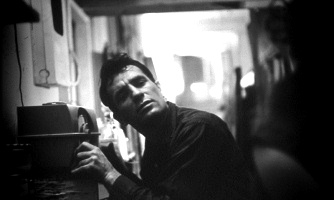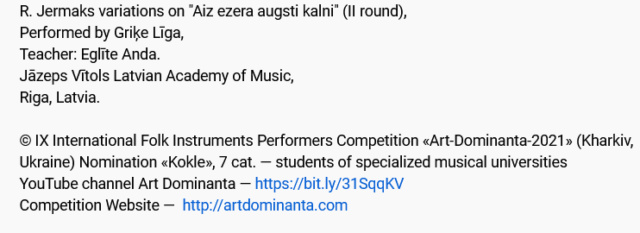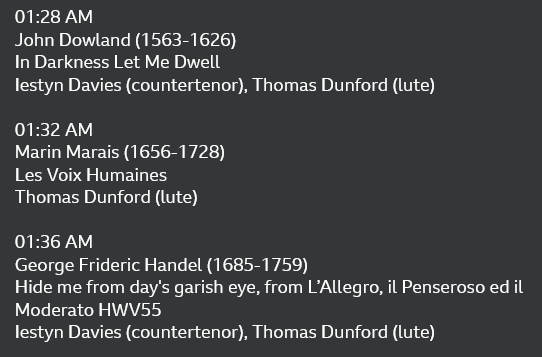Pour le débat théologique, il y a l'émission de la BBC Beyond Belief qui traitait le 18 avril de la résurrection dans le christianisme (voir le sujet ci-dessus).
Pour la réflexion portée par un auteur dans un monologue de 5 X 13'', sans fond sonore sucrant l'écoute, il y a le format The Essay de Radio 3, consacré durant la Semaine sainte à Talking about Silence
Cinq séquences où s'entrecroisent témoignage personnel, vision critique et histoire religieuse. Fil conducteur : l'évolution de la conception du silence chez les théologiens chrétiens. Un sujet que l'on n'a évidemment aucune chance de voir présenter à France Culture, radio qui confond son obligation "laïque" avec une démarche militante visant à supprimer toute référence au christianisme durant les moments les plus saillants du calendrier liturgique. Quel appauvrissement intellectuel !
Pour la réflexion portée par un auteur dans un monologue de 5 X 13'', sans fond sonore sucrant l'écoute, il y a le format The Essay de Radio 3, consacré durant la Semaine sainte à Talking about Silence
Cinq séquences où s'entrecroisent témoignage personnel, vision critique et histoire religieuse. Fil conducteur : l'évolution de la conception du silence chez les théologiens chrétiens. Un sujet que l'on n'a évidemment aucune chance de voir présenter à France Culture, radio qui confond son obligation "laïque" avec une démarche militante visant à supprimer toute référence au christianisme durant les moments les plus saillants du calendrier liturgique. Quel appauvrissement intellectuel !
Talking about Silence" est un pèlerinage personnel autour d'un paradoxe plaisant : on peut mieux comprendre le silence si on en parle. Dans sa nouvelle série d'essais, Diarmaid MacCulloch explore les nombreuses variétés de silence spirituel dans la vie humaine et au-delà, et ce qu'il a appris de ses significations au cours de ses six décennies de carrière en tant qu'historien des religions.
S'inspirant de ses souvenirs de tournage sur certains des sites chrétiens les plus importants du monde pour sa série télévisée sur l'histoire du christianisme, Diarmaid explique que, même si le christianisme est une religion de la parole, il ne peut échapper au silence, car celui-ci fait partie intégrante des expériences vécues par les chrétiens à travers le temps. Il présente le silence sous toutes ses formes : comme l'expression la plus authentique du divin ou comme le véhicule du plus grand mal, au cours des deux mille ans d'existence du christianisme.
A Blakeway production for BBC Radio 3
Traduit avec www.DeepL.com/Translator (version gratuite)
1/ In his first essay, Diarmaid MacCulloch introduces us to the theme of silence and how he has returned to the subject at key points during his career. Looking back on his life, Diarmaid sees it was a path laid down from the beginning, which sprang from the experience of a happy but isolated country parsonage childhood: alert already to history and its delights, but also alert as a gay teenager to the way in which things are not said, and what the meaning of that silence is. The hero of Diarmaid’s favourite story is the little boy who told the crowd that the emperor had no clothes on. That, says Diarmaid, is what his whole career writing and teaching history has been devoted to: showing up the Emperors with no clothes and ending the silences that need ending.
Pour une réflexion sur le silence à la radio, sa nature, son enregistrement :
2/ In this essay, Diarmaid MacCulloch introduces us to the concept of the 'Wild Track' of the TV or radio interview, whose rationale in recording silence is that every silence is different and has its own personality. Diarmaid’s life-long research into the history of Christianity has helped him listen to the 'wild-track' of Christian silences, and how Christians have changed their minds on the subject of silence over time. In fact, the first Christians had little respect for silence: they experienced their God in noise. But in seeking to understand their disasters, they gradually saw how they might find their God in profound silence. Jesus’ life, as portrayed by the Gospel writers, is punctuated by meaningful silence. So, says Diarmaid, silence is built into the foundation of Christian history, and it has taken a multitude of wild-track byways over two thousand years.
3/ Today Diarmaid takes us inside the spiritual homes of Christian silence, the monasteries. But he says, although they seem a natural part of its two millennia of history, monasteries are actually an early import into Christianity from Syria, which made sense for Christianity. The monastic life of contemplation and silence went on to triumph for a thousand years throughout the Church. The triumph was so complete, that monks developed a language of silence, using all ten fingers of the hand to convey meaning in everyday life. And yet, says Diarmaid, as in all triumphs, there was a reckoning.
4/ Today Diarmaid MacCulloch takes us inside Martin Luther’s home in Wittenberg, Germany, to explore how Luther’s message rewrote the lived experience of Christian silence from the moment he burst onto the scene with his radical, reforming message. The monasteries, as factories of silent prayer, were symbolic of the majesty of the medieval western Church, and so they became the chief casualties of the Protestant Reformation. It took the most radical spirits of the Reformation to realise that something precious was in danger of being lost: the Quakers, who have often found that silent gatherings are the best settings in which to worship. Modern Protestants can still be very noisy, says Diarmaid, and he recalls visiting a revivalist megachurch in South Korea that was the loudest of them all.
5/ In his final essay, Diarmaid MacCulloch explores how Christianity contains silences that need ending and the role the historian takes in doing so.














